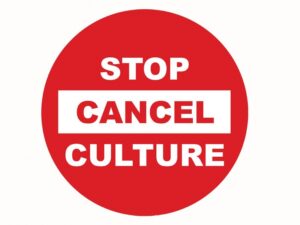
Why We Should Cancel Cancel Culture
It’s no news that the Internet can be a dangerous place, but now there’s a new crisis among teens and young adults that is lurking among the world wide web. This crisis is a method to put down other people who do something the mainstream media considers offensive or contrary to popular belief, and it is extremely harmful for our youth’s mental health.
As the writer here, I do not condone any harmful words or actions for which some people need to be held accountable. Rather, I am emphasizing the dangers of this specific type of groupthink that forces a person into a mindset that is damaging to themselves and the people around them. This mindset assumes someone must be humiliated if they uphold values and opinions that do not meet the media’s standards, and it has a name: cancel culture.
WHAT IS CANCEL CULTURE?
Cancel culture stems from the belief that certain ideas, words, or actions are unacceptable based on a social agenda that requires political correctness. If a person says or does something against this belief, they are “canceled,” which means they face harsh criticism from their peers and are usually shunned altogether. It’s a common phenomenon with celebrities in particular, as a small group of people can be quick to cancel an artist and try to ruin the artist’s career. For example, something a singer posted 10 years ago may resurface on the Internet today and be considered socially unacceptable, even if no one thought twice about it when the singer originally posted it. Another example would be when someone faces judgment for not posting something in support of a specific political or social movement. These are based on another idea that spurs cancel culture: being “woke.”
“Wokeness” is another word for “political correctness.” It has been around for a long time, but it is especially prevalent now that we have the world rushing at us with quick-fire speed–and right in the palms of our hands. These days, our phones give us unlimited access to just about anything, including tons of pressure from the media to be politically correct. The idea is, if you are not “woke,” you face a list of consequences, including being publicly ostracized by friends and strangers alike. Though those who partake in cancel culture are the minority–a group of people that are almost exclusively teenagers and young adults–their voices can overshadow those who understand the true danger of it.
HOW IS IT HARMFUL?
Cancel culture is detrimental to our youth’s mental health, and it doesn’t seem to be letting up anytime soon. It feeds our children the idea that they are not allowed to think for themselves or make their own decisions. Instead, they are forced, often unintentionally, to believe in what everyone else believes. When your child is force-fed the notions of cancel culture as they scroll through social media, they start to think that cancel culture is the proper way to treat those who think differently from them, and they forget their sense of individualism. They may participate in cancel culture to spare themselves any criticism or to fit in with everyone else. They may even face cancellation by their peers and be subjected to a lot of bullying, which can make them feel anxious, depressed, and utterly alone.
WHAT CAN I TEACH MY CHILD?
For starters, make sure your child is not living so chronically online that they let the Internet make decisions for them. Teach them to make opinions based on their own values and not according to what other people think. There’s nothing wrong with thinking differently, so long as these thoughts are well-founded and not harshly imposed on others. It is never okay to humiliate someone publicly for their opinion; instead, remind your child to peacefully coexist with different opinions, even those with which they may strongly disagree, because there will be differing perspectives no matter where your child goes or what they do in life. And, if somebody crosses a line, teach your child to vocalize how that person’s words or actions were hurtful without being disrespectful. ■





